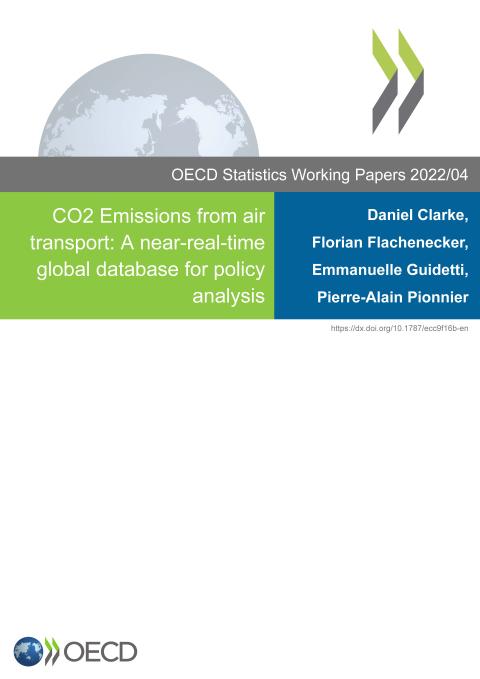CO2 Emissions from air transport: A near-real-time global database for policy analysis

Document Summary:
By moving goods and people over large distances, air transport facilitates international trade and
tourism and thus contributes to economic growth and job creation. At the same time, it also comes
with environmental challenges, largely related to air emissions and their impact on global warming.
Air transport has been disproportionately negatively affected by the COVID-19 pandemic with
associated reductions in air emissions. However, recent projections show that, in the absence of
accelerated technological developments and more ambitious policy measures, aviation-related
carbon dioxide (CO2) emissions will grow again at a rapid pace after the pandemic. This paper
describes a new OECD database providing near-real-time and global information on aviation-related
CO2 emissions, with allocations across countries following either the territory or the residence
principle. This database provides a public good for both statistical measurement and environmental
policy analysis. On the statistical front, it will facilitate the compilation of global Air Emission
Accounts according to the System of Environmental Economic Accounting (SEEA), bring granular
and timely information on a significant source of CO2 emissions, and allow tracking their evolution
during and after the COVID-19 pandemic. The comparison with official statistics that are available
with a significant delay and at lower frequency demonstrates the accuracy of the OECD estimates.
On the environmental policy front, it is expected that the OECD database will help monitor the
impact of technological developments and policy measures to curb aviation-related CO2 emissions
in the future.
This publication is part of the OECD Statistics Working Paper Series
Link to an External Document:
